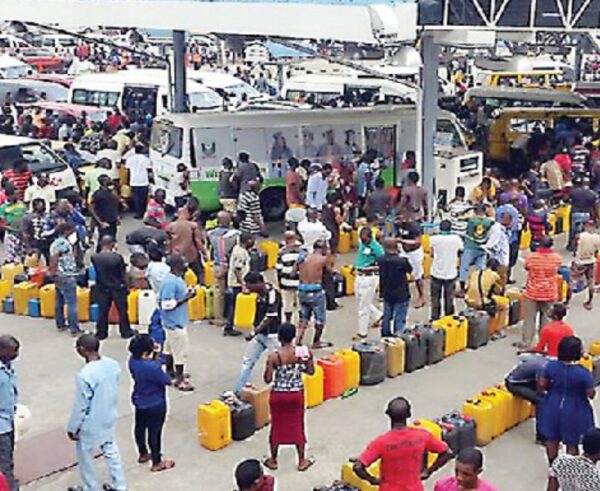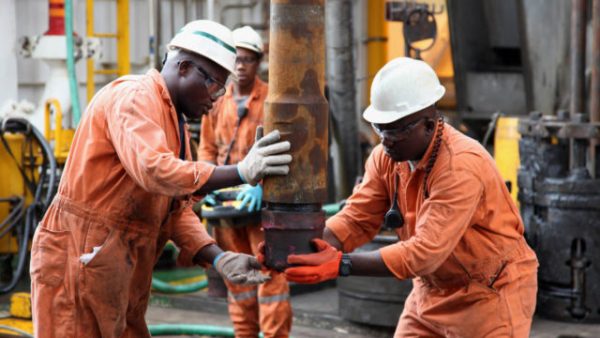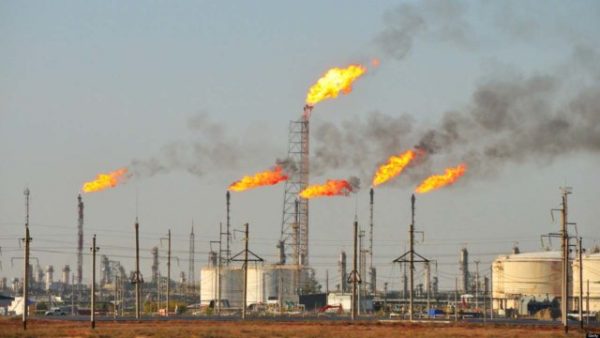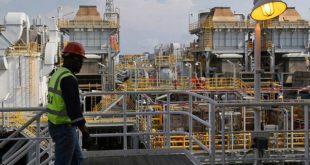
The President, Bola Tinubu, had during his inauguration on May 29, 2023, announced an end to fuel subsidies, which gulped about N12tn of the country’s revenue all through the period of its implementation.
The announcement led to an increase in the price of goods and services, as the cost of various commodities rose by over 200 per cent.

Many citizens consider the move as inappropriate, especially since the fuel subsidies were about the “only” benefit the masses enjoyed from the Federal Government.
As a result, many car owners have cut down on the rate at which they go out with their cars, as petrol prices jumped from between N189-N200litre, to between N560-N700/litre.

Given the current situation, the Major Oil Marketers Association of Nigeria says it is possible to reduce fuel consumption by at least 30 per cent and save money for future purchases if the following tips are taken into practice.
By following these tips, you can effectively reduce your fuel consumption, save money, and contribute to a more sustainable and cost-effective driving experience.
Maintain correct tyre pressure
Ensure that your vehicle’s tires are properly inflated in accordance with the recommended specifications. Under-inflated tyres increase rolling resistance, causing more friction and requiring more fuel to overcome. A decrease of 10psi in tyre pressure can reduce fuel efficiency by up to 10 per cent.
Minise load in the trunk
Except for the emergency spare tyre, carry only essential items in your car’s trunk. Every additional 50kg of weight increases fuel consumption by two per cent
Drive efficiently
If you drive an automatic car, use cruise control to maintain a steady speed. For manual cars, shift to higher gears when appropriate. Avoid rapid acceleration from a complete stop or when climbing hills, as this significantly increases fuel consumption.
Plan your route and use technology
Choose routes that minimise stop-and-go traffic, as constant acceleration and braking consume more fuel. Whenever possible, plan your trips during off-peak hours to avoid traffic congestion. Utilise navigation apps like Google Maps to find the most efficient routes.
Practice predictive driving
Instead of abruptly stopping or accelerating, anticipate traffic flow and adjust your speed gradually. Slow down gradually when approaching a red light or descending a hill. Harsh braking and sudden acceleration lead to increased fuel consumption.
Maintain optimal speed
When driving on the highway, excessive speed increases wind resistance and fuel consumption. Driving at 100km/h burns about 15 per cent more fuel compared to a speed of 90km/h. However, driving below 50km/h may require the car to operate in a lower gear, leading to increased fuel consumption. The most fuel-efficient range is typically between 50km/h and 90km/h on the highway.
Avoid harsh braking
Frequent and aggressive braking followed by acceleration increases fuel consumption. Maintain a safe distance from the vehicle ahead to allow for smooth deceleration and minimise the need for sudden braking.
Ensure fuel cap is tightened
Make sure the fuel tank cap is properly secured to prevent fuel vapour evaporation, which can result in fuel loss. If you anticipate being stationary for more than three minutes, turn off your engine. Idling consumes fuel unnecessarily, even when the vehicle is not in motion. By following these tips, you can effectively reduce your fuel consumption, save money, and contribute to a more sustainable and cost-effective driving experience.
Regular vehicle maintenance
Regular servicing of your car helps maintain optimal engine fuel efficiency. Using the correct lubricants prevents sludge formation and corrosion, ensuring smooth movement of engine parts, reducing friction, and maximising engine power. This contributes to improved fuel efficiency.
Carpooling
Whenever possible, consider carpooling with trusted individuals. Sharing rides with others going in the same direction can significantly reduce fuel consumption and vehicle emissions. Coordinate with friends, family, or colleagues to share the commute and take turns driving. Instead of using your car for every task, explore other means of communication. Consider making phone calls, video conferences, or utilising messaging apps for meetings or social engagements that do not require physical presence. By reducing unnecessary trips, you can save fuel and minimise your carbon footprint. Every day you telecommute reduces the amount of fuel you use by 20 per cent.
Track and measure fuel consumption
Keep a record of your fuel consumption to monitor and identify patterns or changes in efficiency. This can be done by noting the odometer reading and the amount of fuel added during each refill. By tracking your fuel consumption, you can identify any unusual variations and take appropriate measures to address them, such as adjusting driving habits or seeking vehicle maintenance if necessary. Additionally, monitoring your fuel consumption over time can help you assess the effectiveness of your fuel-saving strategies and make adjustments as needed.
Generators to power homes
If you currently rely on petrol generators to power your homes, consider alternative options such as solar power or converting your generators to operate on Liquefied Petroleum Gas or Compressed Natural Gas if these alternative fuels are available in your area. Our preferred option is solar energy. It is important to ensure that your generator conversion is done by a qualified technician. They will have the necessary expertise to safely and effectively carry out the conversion process, ensuring optimal performance and safety.
The Group Chief Executive Officer, Nigerian National Petroleum Company Limited, Mele Kyari, had stated in 2022 that Nigeria consumes about 66 million litres of petrol daily. Upon the announcement, the International Monetary Fund also raised doubts on the reported volumes of fuel consumed in Nigeria, and called for a proper audit of the financials of the state-owned oil company.
Although there have been back-and-forth arguments as to the exact quantity of petrol the country consumes daily, a former Chairman of MOMAN, Tunji Oyebanji, told The PUNCH during a chat that fuel subsidy removal would reduce consumption.
“Now, we will begin to see the true consumption of Nigeria because smuggling will no longer be lucrative,” he said, advising against irrelevant and unnecessary visits at this time.
It is believed that many of the imported products are smuggled out of the country.
Speaking on ARISE NEWS recently, Kyari explained that the removal of fuel subsidies would reduce petrol consumption by 30 per cent.
“In a subsidy regime, in an arbitrage environment, which we have – wherever it is, you cannot eliminate fraud. Because it’s not possible. What this action of taking subsidy off has done is that it will bring down the evacuation from the depot because even when you round-trip, you go across the border, it is the market price, and therefore there’ll be no incentive for that. And I believe that 30 per cent of the volume that we see today will probably vanish,” he stated.
The Managing Director and Chief Executive Officer, Eterna Plc, Benjamin Nwaezeigwe, had told The PUNCH that the country’s petrol consumption had dropped drastically following the announcement by President Tinubu.
“They said we consume 60 million litres daily. That has dropped by 50 per cent from the North, and 30 per cent from the South. With that drop, it means you would need less forex to do business, because we were actually subsidising some of those products for people outside the country,” he said.
Other fuel-efficient driving techniques
According to the government of Canada, other ways to reduce your fuel consumption include the following:
Accelerate gently
The harder you accelerate the more fuel you use. In the city, you can use less fuel by easing onto the accelerator pedal gently. To be as fuel-efficient as possible, take five seconds to accelerate your vehicle up to 20 kilometres per hour from a stop. Imagine an open cup of coffee on the dashboard. Don’t spill it!
Maintain a steady speed
When your speed dips and bursts, you use more fuel, and spend more money than you need to. Tests have shown that varying your speed up and down between 75 and 85 km per hour every 18 seconds can increase your fuel use by 20 per cent. Consider using cruise control for highway driving, where conditions permit. Be mindful, however, that little variations in speed can actually be good when gravity does the work. Where traffic patterns permit, allow your speed to drop when you travel uphill, then regain your momentum as you roll downhill.
Anticipate traffic
Look ahead while you are driving to see what is coming up. And keep a comfortable distance between your vehicle and the one in front of you. By looking closely at what pedestrians and other cars are doing, and imagining what they will do next, you can keep your speed as steady as possible and use less fuel. It is also safer to drive this way.
Avoid high speeds
Keep to the speed limit and save on fuel. Most cars, vans, pickup trucks and SUVs are most fuel-efficient when they are travelling between 50 and 80km/hour. Above this speed zone, vehicles use increasingly more fuel the faster they go.
For example, at 120km/hour, a vehicle uses about 20 per cent more fuel than at 100km/hour. On a 25km trip, this spike in speed – and fuel consumption – would cut just two minutes from your travel time.
Coast to decelerate
Every time you use your brakes, you waste your forward momentum. By looking ahead at how traffic is behaving, you can often see well in advance when it is time to slow down. You will conserve fuel and save money by taking your foot off the accelerator and coasting to slow down instead of using your brakes. Also, always turn off your engine when you are stopped for more than 60 seconds, except when in traffic. The average vehicle with a three-litre engine wastes 300 millilitres (over one cup) of fuel for every 10 minutes it idles.
Measure your tire pressure every month
Driving a vehicle with tires under-inflated by 56 kilopascals can increase fuel consumption by up to four per cent. It can also reduce the life of your tires by more than 10,000km. Find the right tire pressure for your vehicle on the tire information placard. It is usually on the edge of the driver’s door or doorpost.
Use a manual transmission properly
Pay attention to the tachometer, which shows engine speed. Use it to know when to shift a manual transmission for the best fuel efficiency. The higher the rpm, the more fuel the engine is burning. So shift through the lower gears smoothly and quickly, and build up speed in the higher gears. Also, remove items such as salt, sand and sports equipment from your vehicle. The less it weighs, the less fuel your vehicle will use. The fuel consumption of a mid-size car increases by about one per cent for every 25kg of weight it carries.
Remove roof or bicycle racks
Streamline your vehicle by taking off the racks when you are not using them. Aerodynamic drag can increase fuel consumption by as much as 20 per cent on the highway. Air conditioning can increase a vehicle’s fuel consumption by as much as 20 per cent. Open the windows when you are driving in the city, and use the flow-through ventilation system with the windows up on the highway. If you do use air conditioning, use the re-circulate option. It will minimise the impact.
Use a fuel consumption display
See the impact of the five fuel-efficient driving techniques firsthand with the help of a fuel consumption display, a feature now standard on many vehicles. Some newer vehicles come equipped with even more sophisticated displays that analyse speed variations, shift points for manual transmissions, and driving behaviours such as acceleration and braking times. Many drivers consume 15 per cent less fuel by acting on the feedback that fuel consumption displays provide.
Track your fuel consumption
How long can you go without filling your tank? Two weeks? A month? Challenge yourself to refill as seldom as possible and your monthly costs will come down. Plan ahead by mapping out your route, especially if it is long.
 MMS PLUS NG – Maritime, Aviation, Business, Oil and Gas News Online Newspaper with coverage in Maritime, Oil and Gas, Aviation, Power and Energy as well as Financial News
MMS PLUS NG – Maritime, Aviation, Business, Oil and Gas News Online Newspaper with coverage in Maritime, Oil and Gas, Aviation, Power and Energy as well as Financial News









